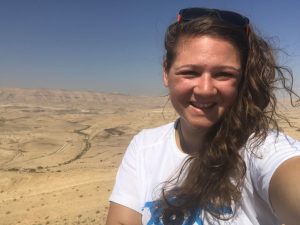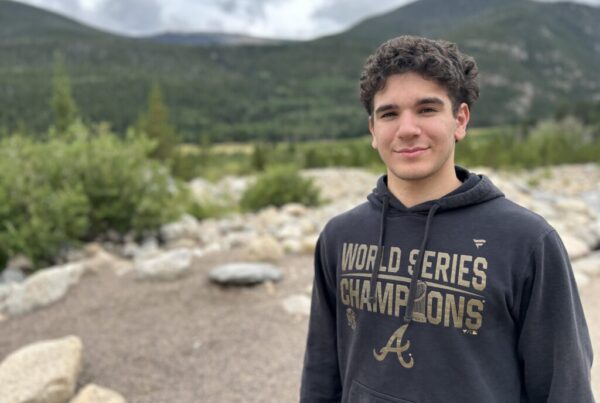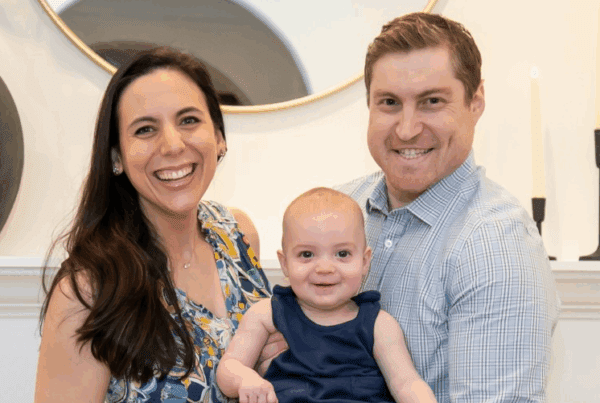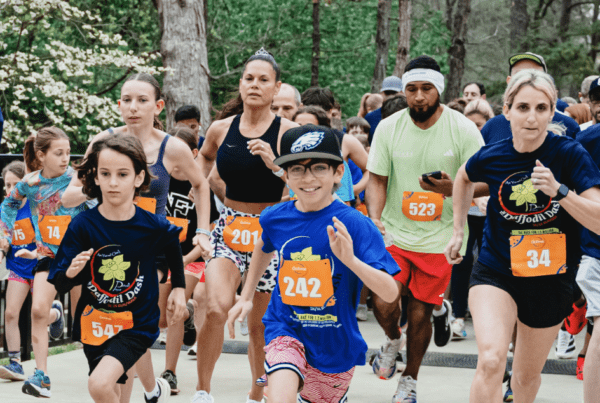
By: Robin Glaubman
Just six weeks ago I traveled to Israel for the first time with 38 strangers on Atlanta’s Birthright Israel summer trip. Quite honestly, I’d never been around so many Jews in my life! I grew up never going to synagogue, attending one Passover seder, one bar mitzvah, and the only Jewish holiday we ever celebrated was Hanukkah. Still, I have always strongly identified as Jewish. I’ve called myself a Heritage Jew, meaning that I was not a religious Jew. The concept of being a “secular” Jew wasn’t even part of my vocabulary. I didn’t realize before the trip that it was yet another way to be Jewish.
Our Birthright bus ranged from people who attended synagogue every week and spoke Hebrew, to myself and eight others who struggled through a phonetic pronunciation of the Torah blessings during our bar/bat mitzvah ceremonies in Jerusalem, and just about every shade of observance in between. When we arrived in Israel we were told to make the trip about ourselves. Not to be self-absorbed, but to make sure we were experiencing our own authentic Jewish journey. It was good advice. I never felt like my opinion wasn’t valid or didn’t want to be heard. I never felt like any less of a Jew than anyone else on the trip.
One night I had a conversation with a fellow secular Jew that really stands out in my mind. We were debating what were the most important aspects of being Jewish. Raising Jewish families? Supporting Israel? Studying Torah? His ideas startled me. And his definition of what is a secular Jew challenged me deeply.
For many years growing up he’d attended a havurah, which I learned is not a synagogue, but a group of people who get together for Shabbat and holidays, usually without a rabbi. He spoke some Hebrew, and he had a bar mitzvah at age thirteen. This shocked me! How could you call yourself a secular Jew and be so involved, so connected to Judaism as a religion. His definition of secular vs. religious hinged on whether or not a person believes in G-d. He also implied that he could not be considered ‘religious’ because he was not Orthodox. This too shocked me. Growing up he was surrounded by Orthodox Jews, so that was what religious Judaism looked like to him.
To me, he was one of the most Jewishly connected people I’d ever met. I may have been one of the least connected Jews he’d ever met. And yet here we were in Israel, on a trip for Jewish young adults, attempting to reconcile some very macro-level questions of what it means to be Jewish. These were big conversations for me. And they’re big conversations for all of us.
While each day of Birthright was filled with a whirlwind of hikes, history lessons, monuments, water activities and limitless information, this conversation remains my biggest takeaway. There are no bad Jews. There are no lesser Jews. We all do Judaism differently and we all do it right. By making the trip about my own Jewish journey, I found a place in Judaism that I could call my own.





